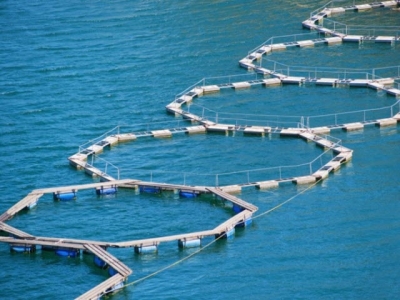Organic selenium use boosts farmed fish health with oxidative stress challenge

Long-term organic selenium supplementation may boost immune responses from farmed pacu without undermining weight gain, say researchers.
A team of Brazilian researchers from the Universidade Estadual Paulista (UNESP) examined the use of differing amounts of organic selenium in the diets of farmed pacu for an extended period of time on immune response and fish development.
The group published its results in the journal of Fish & Shellfish Immunology.
“This study aimed to evaluate the immunological, hematological, and antioxidant responses and growth performance of pacu fed diets supplemented with different selenium concentrations,” they said.
The group found that the long-term use of selenium (Se) in the fish diet did address negative effects from oxidative stress, they said.
“The dietary selenium requirement of pacu was estimated to be 1.56 mg/kg of diet and the long-term dietary supplementation with organic Se at 1.15 mg Se-yeast/kg prevented the immunosuppressive action of oxidative stress and improved immune response and antioxidant status in pacu,” the researchers said. “However, long-term Se supplementation did not affect growth performance, indicating that Se is not a limiting factor to weight gain.”
Why organic selenium?
Selenium has gained some attention as an essential mineral in animal diets that is a component of the enzyme glutathione peroxidase (GPx), said the researchers. The enzyme is involved with regulating reactive oxygen species (ROS) and uses glutathione (GSH) in the process of detoxifying hydroperoxides in extra- and intracellular spaces and lipid peroxides in cell membranes.
“The group of thioredoxin reductases is another selenoprotein subfamily that catalyzes the reduction of thioredoxin (RT) and that is also involved in cellular antioxidant activity, activation of signaling molecules, reduction of ribonucleotides to deoxyribonucleotides for DNA synthesis, and regulation of transcription factors,” they said.
However, it has been suggested that selenium also may play a part in alleviating or preventing the immuno-suppressive behavior of oxidative stress, they said. If that is the case, then selenoproteins like GPx and RT are needed for the immune response.
Se is an essential nutrient for fish, especially for its role in supporting fish immunity when they are raised in an intensive system as that can cause stress and lead to immuno-suppression, said the researchers. Although the dietary requirements for several farmed species, including the rainbow trout, channel catfish, grouper, yellowtail kingfish and carp, have been found, they have not been determined for pacu.
That neotropical freshwater fish has become of large economic import to Brazil and several countries in South America as it is easy to manage, has rapid growth and is marketable, they said.
Methods
In the study, 260 fish were given one of five diets containing a range of commercially-available, organic selenium for a period of 65 days, said the researchers.
The diets included concentrations of the additive at 0, 0.3, 0.6, 0.9 and 1.8 mg Se-yeast/kg, they said. “The final analyzed selenium concentrations were 0.72, 0.94, 1.15, 1.57 and 2.51 mg/kg, respectively,” they added.
At the end of the feeding trial, sample fish from each diet were collected, weighed, measured and blood and liver samples were taken, they said.
Liver samples were checked for catalase (CAT), glutathione S-transferase (GST), glutathione peroxidase (GPx) and reduced glutathione (GSH) amounts, said the researchers. Blood collected was analyzed for hematocrit (HTC), red blood cell count (RBC), mean corpuscular volume (MCV), white blood cell count (WBC) and differential leukocyte count.
Fish weight gain, feed intake and feed conversion were also calculated, they said.
Results
Long-term supplementation of Se was not found to alter growth performance, weight gain or negatively affect fish survival, said the researchers. And the dietary requirement of selenium was estimated to be 1.56 mg/kg.
Supplementing fish diets with the selenium at 1.15 mg Se-yeast/kg improved some immunological responses, hematological parameters, MCV and WBC by restoring antioxidant enzyme production and counteracting oxidative stress, they said.
“Se supplementation in pacu diets at 1.15 mg Se-yeast/kg for 65 days improved immune response and antioxidant defenses, suggesting that oxidative stress impairs immune system response to prevent excessive reactive oxygen species in cells and indicating the occurrence of a physiological trade-off between immune and antioxidant systems,” said the researchers.
Adding additional levels of Se to fish diets boosted leukocyte respiratory burst activity, WBC, RBC, HTC and thrombocyte count, along with several enzymes including GST and GPx, they said. But, adding 2.51mg Se-yeast/kg lowered lysozyme levels, the WBC, RBC, thrombocyte count, HTC and MCV along with the enzymes GST and GPx.
“Those findings are important to future studies because showed the negative effect of oxidative stress on immunity, and may help to prevent any inhibition of the expected immune response after immuno-modulators administration and vaccination,” they said.
Có thể bạn quan tâm
Phần mềm

Phối trộn thức ăn chăn nuôi

Pha dung dịch thủy canh

Định mức cho tôm ăn

Phối trộn phân bón NPK

Xác định tỷ lệ tôm sống

Chuyển đổi đơn vị phân bón

Xác định công suất sục khí

Chuyển đổi đơn vị tôm

Tính diện tích nhà kính

Tính thể tích ao hồ




 Juvenile brown trout see benefit from veggies in…
Juvenile brown trout see benefit from veggies in…  What fats offer the best response in salmon…
What fats offer the best response in salmon…